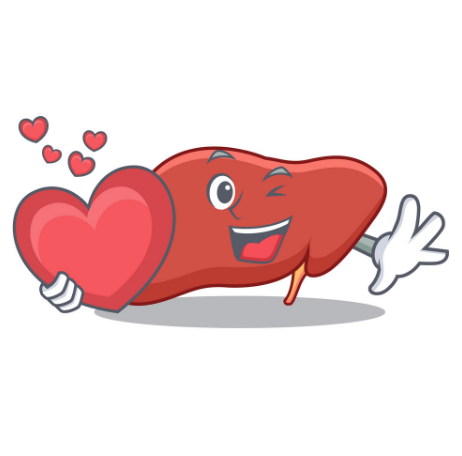Loving your liver… and gallbladder
Katie Noble, SPCNM Graduate Practitioner 2019
BNatMed
There are many theories about what food we should eat and when. But ultimately, healthy liver and gallbladder function is the backbone of how our digestive system handles the food that we eat every day. The liver is a powerhouse of an organ and is involved in hundreds of metabolic processes. Its main responsibilities are producing bile and detoxifying the body but it also metabolises carbohydrates, proteins, lipids, vitamins and minerals. The gallbladder meanwhile stores bile ready for release in the presence of fats so they can be emulsified and utilized in the body.
Compromised liver function can be seen visibly with dark circles under the eyes, bad breath and a yellow tongue. Poor function can cause nausea, fatigue, an intolerance of fatty foods, constipation, skin problems and anger. On a more subtle level bloating and gas; headaches; PMS and food intolerances are linked to a sluggish liver.
What is the best way of making sure these organs are working at their optimum?
Bitter / Sour foods: eating bitter and sour foods sends a strong signal to the body that it is time to digest! The receptors on our tongues respond by increasing saliva to begin breaking down food in the mouth. This stimulation sets off the whole digestion process: the stomach produces hydrochloric acid, the liver and gallbladder are stimulated to produce and release bile and the pancreas releases digestive enzymes into the small intestines.
Bitter and sour foods tend to make your mouth water – think apple cider and balsamic vinegar; pickles; rocket; lemon and aperitif drinks. Try to incorporate one of these before you start a meal to kick start the process.
Fibre: making sure you eat enough fibre from plant based foods: vegetables, flaxseed meal and slippery elm are good to include in your diet as they keep your bowels moving, help with elimination and feed your gut microbiome. I wrote more extensively about fibre here Why All the Fuss About Fibre?
Fermented foods: there is a lot of talk about the benefits of fermented foods, and they are excellent at feeding your gut microbiome by providing pre and probiotics. For some people they are too much and can create a histamine reaction, so start slow with just a teaspoon at a meal and see how you go. If you find you are getting flushed, itchy, headaches, or feeling nauseous take the fermented foods out and make sure they are not causing the symptoms.
What about your meals: Our bodies need to be relaxed in order to digest food, so try and make meals a calm and peaceful experience. Part of the health giving benefits of the Mediterranean diet are attributed to the socialization and enjoyment of food. Try and carve out time in your day to stop and enjoy the process.
It’s also important to give your digestive system a break to allow the small intestine to clear out and prepare for the next meal. Reduce snacking between meals and finish eating several hours before bedtime to allow the body to prepare for rest and rejuvenate overnight. This is a much needed break from digestion and elimination and allows energy to go into other bodily repair.
Keep your serving sizes reasonable. Smaller meals are easier for the body to digest. Aim to provide a balance of fats, carbohydrates and proteins at each meal. Make sure at least half the plate is vegetable sourced, good lean protein and good quality fats like olive oil, avocado and seeds.
If you are experiencing some of the symptoms discussed above or find yourself regularly waking between 1-3am, go and talk to a naturopath about getting some more help with liver and gallbladder function. Sleep is so important for our bodies to work effectively and sometimes a bit more support is needed if the basics are not doing the job.
References
Bioconcepts. (2018). 7 lifestyle and dietary habits for healthy liver and gallbladder functions.
Hechtman, L. (2012). Clinical naturopathic medicine. Sydney, Australia: Churchill Livingstone Elsevier.
Murrell, D. (2018). Histamine intolerance. Retrieved from https://www.healthline.com/health/histamine-intolerance




